
Heidi Crayton, MD, and Maria Lopes, MD, discuss future research in multiple sclerosis that they find exciting and promising.

Heidi Crayton, MD, and Maria Lopes, MD, discuss future research in multiple sclerosis that they find exciting and promising.

Key opinion leaders discuss the single FDA-approved option for primary progressive multiple sclerosis and emerging therapies under investigation for this MS subtype, examine the PERSEUS trial, and address concerns they anticipate with the potential approval of BTKis for MS patients and strategies for mitigating these concerns.

Medical experts discuss the failure of evobrutinib to meet its primary endpoint in phase 3 trials, review the primary outcomes of the phase 2B study of tolebrutinib in relapsing multiple sclerosis, examine payers' perspectives on the currently available data for tolebrutinib, and briefly describe the design of the HERCULES trial.

Heidi Crayton, MD, discusses the rationale for investigating Bruton tyrosine kinase inhibitors (BTKis) as a treatment for patients with multiple sclerosis and the current stage of development for evobrutinib, tolebrutinib, and other BTKis.

Heidi Crayton, MD, discusses the typical coverage criteria requirements she encounters from payers for currently-approved therapies for multiple sclerosis.

Key opinion leaders discuss the challenges associated with step therapy requirements after initially selecting a drug class, the patient factors considered when deciding to switch a patient with non-relapsing secondary progressive multiple sclerosis to a different therapy, and whether payers commonly employ step therapy between different drug classes.

Experts in multiple sclerosis discuss the potential introduction of a subcutaneous form of ocrelizumab to the market in late 2024 and how they plan to incorporate it into their treatment algorithms.

Heidi Crayton, MD, and Maria Lopes, MD, discuss the most recent 2018 guidelines for multiple sclerosis treatment, emphasizing the need for updated guidelines, particularly in the payer space, to ensure coverage criteria for MS medications, and they also consider the factors that influence their decision-making process when selecting therapies for patients with relapsing multiple sclerosis.
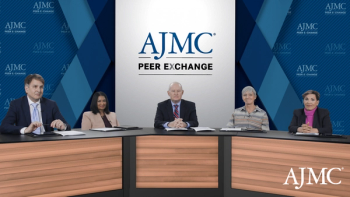
Looking to the future of Alzheimer disease treatment, the panel discusses key takeaways on the evolving therapeutic landscape.

Experts discuss how payers can prepare for new treatments and plan adequate coverage for patients with Alzheimer disease.

An overview of how disease-modifying treatments for Alzheimer disease can impact medical costs and caregiver burden.

The panel discusses emerging therapies for Alzheimer disease that are currently in development, including donanemab, subcutaneous lecanemab, and ALZ-801.

A comprehensive discussion on the value of therapies for Alzheimer disease based on cost vs outcome, and unmet needs in the overall treatment landscape.

Experts provide their perspectives on clinical factors taken into consideration when deciding on a treatment plan for a patient with Alzheimer disease.

Experts on Alzheimer disease discuss how the introduction of disease-modifying therapies has impacted the treatment landscape.

The panel provides insights on the economic impact of advanced approaches for diagnosing Alzheimer disease, highlighting how payers approach increased costs.

Focusing on the diagnosis of Alzheimer disease, the panel discusses key diagnostic criteria, testing practices, and the role of genetic testing.

B. Joy Snider, MD, PhD, discusses the benefits of early diagnosis of Alzheimer disease and how it can impact the patient journey.

The expert panel offers comprehensive insights on the patient journey for people with Alzheimer disease, highlighting symptoms, challenges, and the diagnostic process.

The panel provides an overview of genetic factors associated with Alzheimer disease and the genetic mutations that contribute to the pathophysiology of the disease.
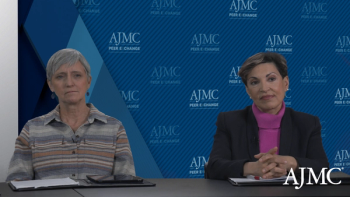
B. Joy Snider, MD, PhD, gives an overview of the pathophysiology of Alzheimer disease, highlighting recent advances in the field.

A panel of experts on Alzheimer disease provide insights on symptoms the patient might experience and the impact of the disease on patients, families, caregivers, and the health care system.

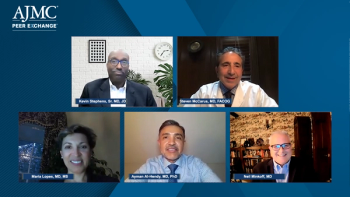
Payer decision-makers discuss defining value among agents for unintended pregnancy, uterine fibroids, and endometriosis.

A panel of experts discuss treatment selection among contraceptive agents and evolving treatment strategies for uterine fibroids and endometriosis.

Payer considerations regarding unintended pregnancy is discussed by Maria Lopes, MD, MS, and Kevin Stephens Sr., MD, JD.

Ayman Al-Hendy, MD, PhD identifies risk factors for development of US and endometriosis.

Kevin Stephens, Sr. MD, JD examines key drivers of healthcare utilization for women of childbearing years.

Steven McCarus, MD FACOG highlights the shift away from surgical treatment toward medical therapy in UF and endometriosis.

Dr Lopes, OB-GYN and payer, discusses a focus on screening and prevention and availability of contraception among health plans in women’s health.

Published: March 2nd 2022 | Updated:
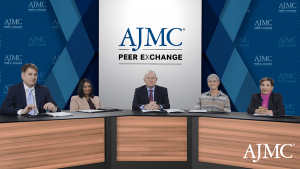
Published: May 22nd 2024 | Updated:

Published: March 2nd 2022 | Updated:

Published: May 22nd 2024 | Updated:
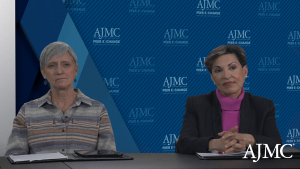
Published: May 15th 2024 | Updated:

Published: April 22nd 2022 | Updated:

259 Prospect Plains Rd, Bldg H
Cranbury, NJ 08512
© 2025 MJH Life Sciences®
All rights reserved.
